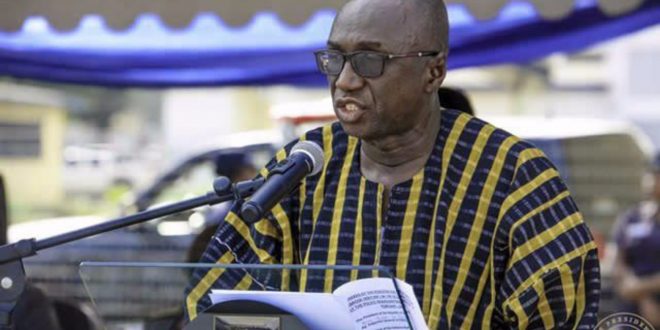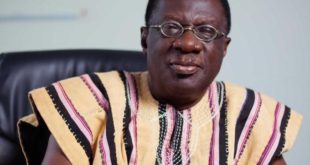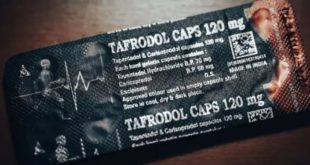The Interior Minister, Ambrose Dery, has disclosed that a total of 670 inmates have been enrolled in formal education as part of efforts to rehabilitate and reform them for their reintegration into society, after their discharge from prison.
According to him, the Ghana Prisons Service continues to provide and engage inmates in various rehabilitation and reformation programmes designed to equip them with knowledge and cutting-edge skills.
Answering questions on the floor of Parliament yesterday, the minister said the 670 inmates included 100 juveniles in Junior High Schools, while 400 inmates are enrolled in the Senior High Schools.
He noted that 26 juveniles, who sat for the 2021 BECE, recorded a 98% pass, whereas six adult inmates who sat for the same exams had a 100% pass. The nine inmates who sat for the 2021 WASSCE recorded a 100% pass.
Mr. Dery said the Prison Inmates’ Tertiary Education Programme, which is being run at the Nsawam Medium Security Prison currently, has 116 inmates of which 13 are females.
He, however, indicated that 23 of them had been discharged and transferred or integrated into various University of Cape Coast Study Centers, adding that the programme is currently in the first semester of the 2021/2022 academic year.
Vocational Programmes
He said vocational training programmes have also been designed to ultimately lead inmates to acquire NVTI trade test certificates, pointing out that these programmes are being run in some of the prison establishments across the country.
“Programmes taught include hairdressing, tailoring, bread baking, carpentry, ceramics, auto-electrical, general electrical, auto mechanics, welding, batik-tie and dye making, basket weaving, kente-weaving, crocheting, doormat making, ceramics and soap making,’ he said.
He added that a total of 1,375 inmates across the country’s prisons, including 175 juveniles, are currently being trained in these NVTI programmes.
On agriculture, the minister said some inmates were equally engaged in modern farming practices at stations designated for farming activities.
“This is aimed at equipping inmates with the necessary farming skills needed to compete well in the agricultural market after discharge,” he asserted.
Currently, there are 21 farming stations across the country. These are the Kenyasi Camp Prison, Duayaw-Nkwanta Camp Prison, Forifori Camp Prison, Amanfrom Camp Prison, Ejura Camp Prison, Hiawa Camp Prison, Osamkrom Camp Prison, Akuse Male Local Prison, Awutu Camp Prison, Yeji Camp Prison, Ahinsan Camp Prison, Ankaful Prison Annex, Ankaful Main Prison, James Camp Prison, Kpando Local Prison, Navrongo Central Prison, Nsawam Male and Female Prisons, Obuasi Local Prison, Tarkwa Local Prison and Yendi Local Prison.
For Mr. Dery, these stations train inmates best farming techniques in maize, palm plantation, livestock, rice, cassava farming and other crops, saying “these are used to supplement Government’s efforts at feeding inmates.”
Source: DGN Online

Send your news stories to myghanamedia@gmail.com and Chat with us via WhatsApp on +233 200818719
 MYGHANAMEDIA.COM Best Source Of Latest News
MYGHANAMEDIA.COM Best Source Of Latest News




